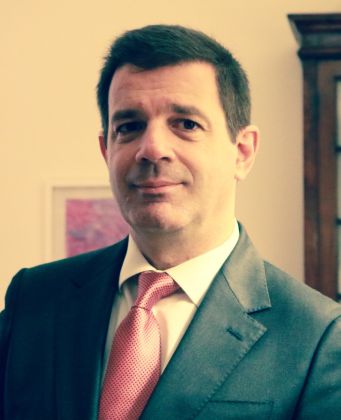The Yurydychna Gazeta continues introducing world law firms and their representatives to its readers. We have got an interview with Duarte Henriques, the partner in BCH Lawyers the law firm (Portugal). He told us about the legal market in Portugal, role of the Portuguese Bar Association, and the principles to build and manage legal business he himself follows.
 |
Маєте Телеграм? Два кліки - і ви не пропустите жодної важливої юридичної новини. Нічого зайвого, лише #самасуть. З турботою про ваш час! |
 - Senhor Henriques, first of all we would like to ask you about the legal business in Portugal. Could you tell us about the level of development of the Portuguese legal market?
- Senhor Henriques, first of all we would like to ask you about the legal business in Portugal. Could you tell us about the level of development of the Portuguese legal market?
- The legal market in Portugal has experienced a slow but steady change over recent decades. Not only have the local firms moved from a rudimentary form of partnership, where the main purpose of the partners was a simple sharing of expenses, but also a couple of international law firms have gained a foothold in Portugal. Firstly, this began with major Spanish law firms opening local offices through mergers or partnerships deals. Then, more recently, some American and English law firms have entered into close associations with local firms (for instance DLA Piper) or opened their own offices in Lisbon (Linklaters).
On the other hand, the legal market is not utterly alien to the pro-FDI environment that is currently seen in Portugal. One sign of this is certainly the launch of the “Golden Visa” program which offers Portuguese citizenship to foreign nationals. This program basically offers citizenship if a foreigner makes a certain investment in Portugal over a period of 3-5 years under a number of conditions. This means that there is a host of small local firms doing work related to this procedure and the resulting ancillary matters, such as a real estate, start-ups, labour and so on.
In a nutshell, I can say that Portugal is foreign investment friendly and, thus, there is close cooperation with international firms where the legal work is concerned.
- What is your firm’s position on the market?
- BCH Lawyers is a small boutique law firm dedicated to international dispute resolution. Our 30 year history means that we have a combination of skills and a solid background in both the transactional area (comprising banking and finance, corporate law, M&A, commercial, and tax) and dispute resolution in those specific fields of law. True insight has been gained through a solid track record of representing banks and financial institutions, IT and IP companies, as well as entertainment and construction companies. Our experience in banking and finance matters has also provided us with a very important specialization in regulatory disputes and other complex foreign investment disputes, both at the arbitration and the court litigation levels.
Therefore, I can say that we are located in a specific premium niche of the legal market, which make us a “one of a kind” law firm in Portugal.
- Could you tell our readers a little about the history of your company?
- Our firm started in 1990 when we opened our first office in Lisbon. At that time we were four named partners but only two of us (Rui Barreira and myself) were permanently working at the office, while the other two were taking office in other institutions as in-house counsel. Our work concentrated in all those areas of the law that I mentioned before. From 2000 we then started to expand our case docket (both in the kind of matters that were entrusted to us, and the values at stake), and recently we expanded geographically by opening an office in Leiria, an industrial city located 130 km north of Lisbon. At the same time, we expanded our global reach by setting up associations and teaming up with international law firms in Paris, London, New York, Los Angeles, Madrid, São Paulo, St. Petersburg, Seoul, and, more recently, in Kyiv.
- In your opinion what is the main component of your success and how does it impact on rapid and positive development of your firm?
- To be honest, I would say that it is our ability to work with over a global reach , dealing with matters that have no connection whatsoever with the Portuguese jurisdiction. It is this reach which makes us unique on the international landscape. Geographical distance is not an issue for us anymore, and working abroad is part of our day-to-day business. For instance, we are currently dealing with matters on a “working out of London / New York / Seoul” basis, which renders virtually invisible any traveling costs for clients and law firms associated with us. This approach allows us to use flexible and cost-efficient solutions for our clients.
On the other hand, we have adopted a strict “hands-on” approach, which means that every partner of the law firm is always in close contact and working directly on the files. Each partner serves as a point of contact with the clients. We understand that when a client comes to us, they want to get our full attention to their case. For this reason, care is provided by the partner, and not a delegated junior lawyer or, worse still, a trainee. Of course, there is a lot of work done by junior lawyers and trainees but it will always be the partner who will stay on top of the matter and liaise directly with the client.
Finally, we managed to combine our strong background in substantive law with excellent skills in dealing with international disputes - both in litigation and arbitration.
Naturally, with three decades of experience on the market, it goes without saying that we make reliability and trust our key concerns. Hence, II do believe that these key factors make us one of the best boutique law firms available on the market for dealing with global dispute resolution.
- What approaches do you use in your work?
- Again, I should emphasize that we adopt a partner hands-on approach, using billing and working methods that allow us to work on very flexible terms. We also adopt a lien team approach, meaning that, generally speaking, a case will not take more than two partners on board. On the other hand, we maximize our close and permanent contact with clients, meaning that we try to follow the principle that we will always be easy for clients to reach, 24/7.
So, to be brief, I would say that we are hands-on, use flexible financial structures, enjoy close and permanent contact with clients, and are reliable in always providing high-quality services. That is probably how I would best describe our approach to work.
- Which practice areas are the most popular on the Portuguese legal market?
- In Portugal, the vast majority of legal professionals are working in the “self-employed” or “small law firm” mode where they carry out general practice (commercial, family law, real estate, residential leasing, and the like). Medium and large sized law firms provide a full set of legal services, in which case they offer services in corporate, labour, finance, banking, IP, dispute resolution, public procurement, mergers and acquisitions, private public partnerships, project finance, administrative, and even white collar law. Currently, there is also an interesting new trend for legal services in both the sports and start-ups businesses.
However, if I ought to pick the five most popular areas I would pick white-collar crime, dispute resolution, private public partnerships and project finance, corporate, and business transactions as being most popular
- You are a member of the Portuguese Bar Association. Tell us about this organization in Portugal. What influence does it have on the work of lawyers in your country? How does it protect the rights of lawyers?
- Indeed, I am a member of the Portuguese Bar Association and, our Bar plays an important role in protecting the legal professionals in Portugal. However, its role has been more devoted to issues of legal aid and the payment of legal fees for public defenders who found in this area of the law a way to start a (and often support their already established) legal career. The Portuguese Bar Association also devotes a considerable amount of time and effort to contributing to the long waited and long needed reforms of the judicial system, but more often than not its “voice” is underestimated by the political powers.
In any event, the Portuguese Bar Association has managed to safeguard the interests of its associates in relation to health care and the retirement pension system. The Bar Association also keeps strict and close surveillance of the professional conduct of its associates, investigating and prosecuting individuals who violate their ethical duties. The combat of illicit legal representation is one of the top priorities of the Bar Association.
The Bar Association has a complex organizational structure, composed of central bodies and regional sections, along with an ethical surveillance committee and a private social security entity. Every member of these institutional bodies is democratically elected, and we have no report of any external political influence or fraudulent conduct with any impact on the results.
- Have you had any experience of cooperation under the joint projects with Ukrainian lawyers? If yes, what were them? How would you estimate the work of Ukrainian lawyers?
- Yes, our Ukrainian partner is the law firm “Suprema Lex”. We are working now with this law firm on some international litigation cases, i.e. PrivatBank bondholders protection. We estimate the work of Ukrainian lawyers as proactive and highly qualified.
- Which conclusions have you made about the situation of legal business in Ukraine? How can you compare Ukrainian legal business with Portuguese one?
- As far as I have understood, the status of the legal business in Ukraine is very similar to the Portuguese setting. It is still developing, with big international law firms still do not hurry to enter it, but it is very interesting due to investment opportunities and interesting projects.
- What are the main rules of conducting your business?
- I believe that every aspect of our practice revolves around the following ideas: honesty, transparency, communication, being proactive, and practicality. All the other principles and rules that guide our business are nothing but a result of the way we put these key-words into practice.




